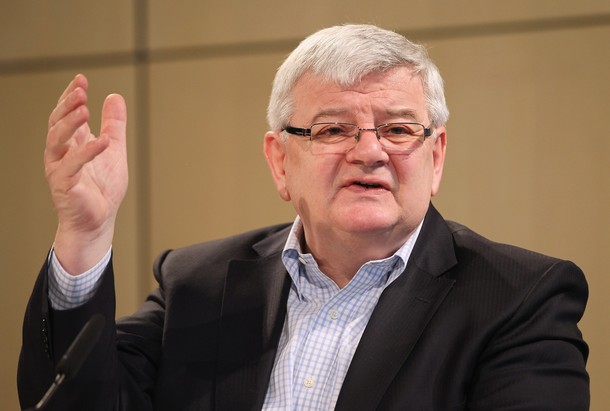
From Spiegel: In an interview with SPIEGEL, former Foreign Minister Joschka Fischer discusses the mistakes the ministry’s current leader Guido Westerwelle has made with Libya
SPIEGEL: What is it about Germany’s current foreign policy and Foreign Minister Guido Westerwelle that bothers you?
Fischer: Pretty much everything. As the former foreign minister myself, the lack of fundamental convictions pains me. This is fundamentally much worse than losing your compass. We are being governed by those who have lost touch with reality and are denying what’s obvious to everyone else.
SPIEGEL: Westerwelle is claiming that he played an important role in overthrowing Libyan dictator Moammar Gadhafi.
Fischer: He claims in all seriousness that his sanction policies were primarily responsible for doing away with the Gadhafi regime. Everyone knows that’s nonsense, and that absolutely no progress would have been made if NATO hadn’t intervened militarily. No, the behavior of Germany’s government during the Libya conflict, its abstention in the UN Security Council (vote in March on whether to impose a no-fly zone in Libya), was a one-of-a-kind debacle and perhaps the biggest foreign policy debacle since the founding of the Federal Republic of Germany. Our country’s standing in the world has been significantly damaged. And some of that also comes from Westerwelle’s recent justifications for his Libya policies.
SPIEGEL: What do you mean?
Fischer: He spoke about how new centers of power would necessitate new strategic partnerships. One needs to take a moment to savor this sentence. Presumably that means that Germany intends to start pursuing its own global policies now with the new centers of power — China, Russia, Brazil and India — the same countries it joined in abstaining from the Security Council vote. I just don’t understand it. Even in the 21st century, the basic features of Germany’s situation haven’t changed at all. We’re too big to confine ourselves to playing a role like the one Switzerland plays. But we’re too small to play the role of a global power. Our supreme interest should be holding tight to our anchoring as part of the West. In doing so, something that is paramount — and, indeed, essential — is finishing the process of European unification.
SPIEGEL: Westerwelle says he is acting in accordance with an important tradition in German foreign policy, namely that of being reluctant to take military action. Doesn’t he have a point?
Fischer: Our military has no primacy, it’s in our constitution. But a policy of being reluctant to take military action can’t become a free pass for dictators to pursue policies of bloody suppression. In hindsight I think we waited too long before intervening in Bosnia back in 1995. In the case of Iraq in 2003, it was right for us not to get involved because the Bush administration’s rationale for going to war didn’t hold up and the consequences hadn’t been thought through. It’s always a difficult decision to deliberate on a military deployment. I wouldn’t accuse any of our politicians of being trigger-happy.
SPIEGEL: Still, in the case of Libya, were you completely convinced that military attacks were necessary?
Fischer: Gadhafi was threatening a bloodbath in Benghazi; the civilian population was facing imminent danger. It was clear that a majority in the Security Council backed intervention and that there was also support from the Arab League and the Organization of the Islamic Conference. What more could the German government really want before giving its approval? The Russian and Chinese abstentions can be viewed as silent approval. But let’s not kid ourselves, Germany’s abstention was effectively a ‘no’ — and isolated Germany from its alliance partners. (photo: Getty)
Image: getty%208%2029%2011%20Joschka%20Fischer.jpg
